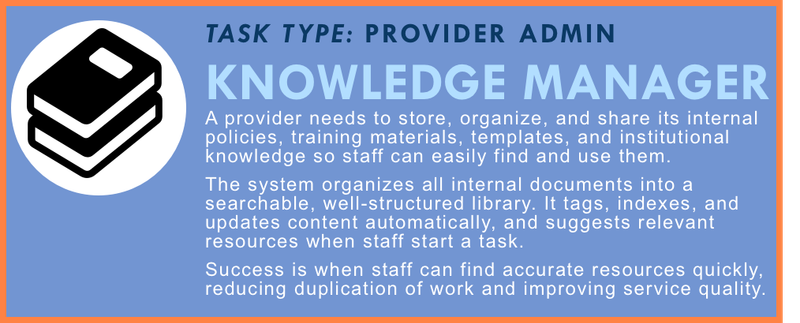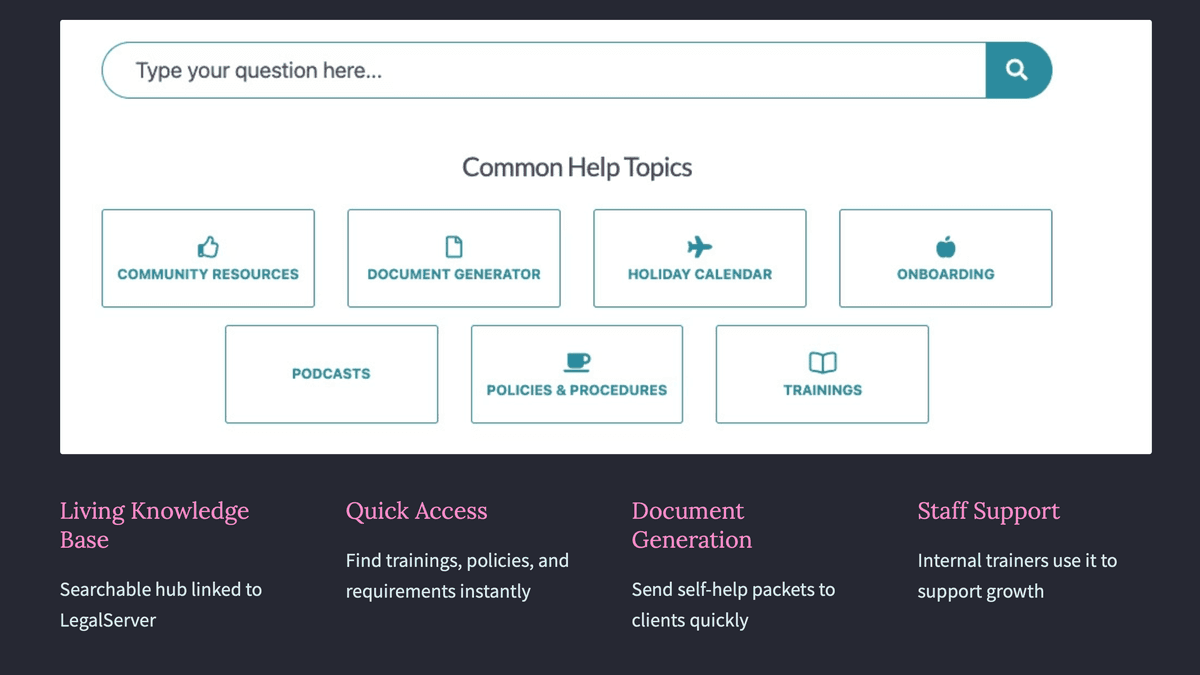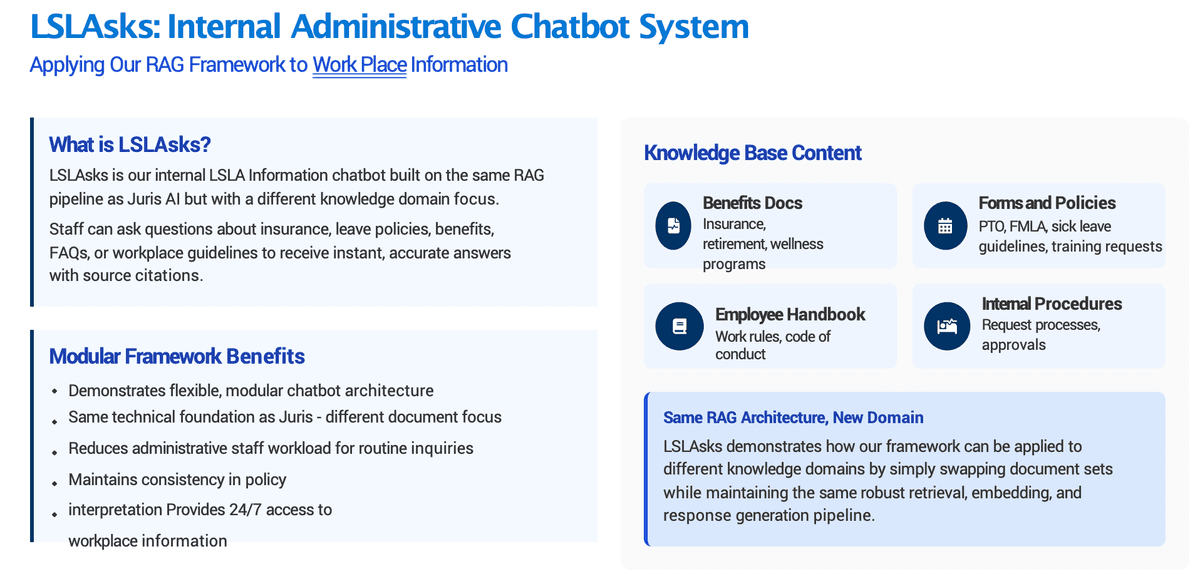Knowledge Management

Organize, maintain, and share an organization’s policies, procedures, templates, and expertise so that every team member can quickly find what they need to do their work effectively.
Task Description
Legal aid organizations and other public service providers handle a vast amount of institutional knowledge — from HR policies and staff onboarding materials to program-specific procedures, casework templates, and training resources. Without a clear, accessible system for managing this knowledge, critical information can get lost in inboxes, scattered across shared drives, or siloed in individual staff members’ heads.
Effective Knowledge Management ensures that this information is collected, organized, and updated in a central, searchable location that all relevant staff can access based on their roles. A strong KM system makes onboarding faster, improves compliance, reduces errors, and frees up staff time by cutting down on repetitive internal questions. It also preserves institutional memory during staff turnover, enabling consistent and equitable service delivery across locations and teams.
This task involves:
- Inventorying existing internal documents, templates, procedures, and training content.
- Structuring and tagging materials so they are easy to browse and search.
- Providing secure, role-based access to sensitive or department-specific materials.
- Integrating with daily tools like case management systems or HR platforms.
- Setting review and update schedules to keep materials current.
- Training staff on how to access and contribute to the knowledge base.
How to Measure Quality?
A high-quality knowledge management system should demonstrate:
- Accessibility: Staff can locate needed documents or policies within 1–2 minutes using search or navigation.
- Completeness: All key policies, procedures, and templates are represented, with minimal gaps.
- Currency: Materials are reviewed and updated on a regular schedule (e.g., every 6–12 months).
- Usability: Information is presented in clear, well-organized formats, with consistent naming conventions and version control.
- Adoption: High percentage of staff actively using and contributing to the knowledge base.
- Impact: Reduction in repetitive internal questions and faster onboarding times.
Related Projects

Staff Compass knowledge management system
Legal Aid Society of San Bernardino (LASSB) is piloting “Staff Compass” — a SweetProcess-powered internal knowledge hub that unites policies, procedures, and training for every staff member, no matter where they work.

LSLAsks
A chatbot prototype from Lone Star Legal Aid to provide staff with centralized, searchable access to internal policies, benefits information, and workplace procedures.